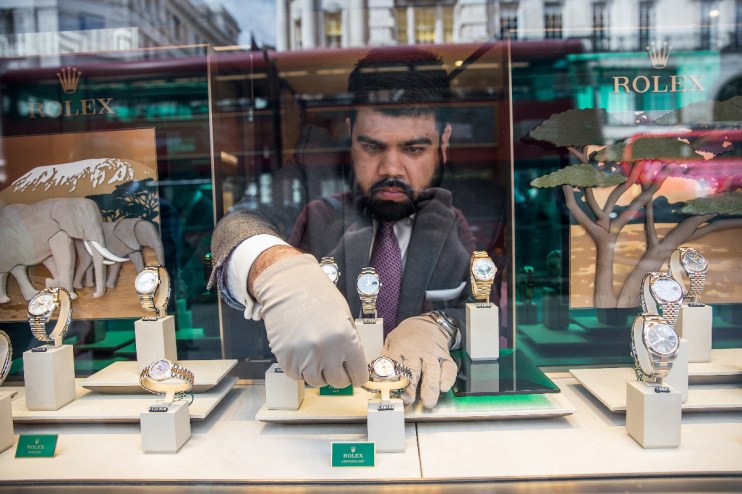Watches of Switzerland, the British retailer which sells the likes of Rolex and Tag Heuer luxury items, said it was “cautiously optimistic” about trading over the next financial year as the firm reports modest growth.
This morning, the luxury FTSE 250 firm, reported a four per cent increase in group revenue to £380m over the 13 weeks to the end of April.
Shares have risen by over 15 per cent in early trade as markets respond to the news.
US revenue remained strong up 14 per cent on last year’s figure to £190m, but in the UK the figure slumped by four per cent.
The retailer blamed the impact of the tourist tax, noting that UK performance continues to be driven by “domestic clientele with minimal return of tourist spending due to the lack of VAT free shopping”.
As customers get savvy amid the cost of living crisis the business also reported a growing demand for second hand luxury Rolex watches and other pricey wares.
For the year ahead, Watches of Switzerland expects adjusted EBITDA to rise between just 0.2 -0.6 per cent.
Brian Duffy, chief executive officer, said: “We enter FY25 with cautious optimism. We have a terrific programme of showroom developments on both sides of the Atlantic with the Rolex flagship boutique on Old Bond Street, London; a 3,000 sq. ft Rolex boutique replacing the Mayors multi-brand in Atlanta, Georgia; and our first Rolex showroom in Texas in Plano.
“We are also looking forward to the Audemars Piguet Town House and the Mappin & Webb luxury jewellery showroom both in Manchester, and the expanded Patek Philippe space in Greenwich, Connecticut.
He added: “The inherent strength of the categories we operate in, coupled with our superior business model and retail expertise continues to set us apart. We remain focused on executing our Long Range Plan and are committed to the targets to more than double sales and Adjusted EBIT by the end of FY28.”
Watches of Switzerland is just one of many high end designers feeling the squeeze.
On Wednesday, British fashion Burberry warned wholesale revenue is to fall by around -25 per cent in the first half of the year as shoppers scale back on expensive purchases.
Credit: Source link
